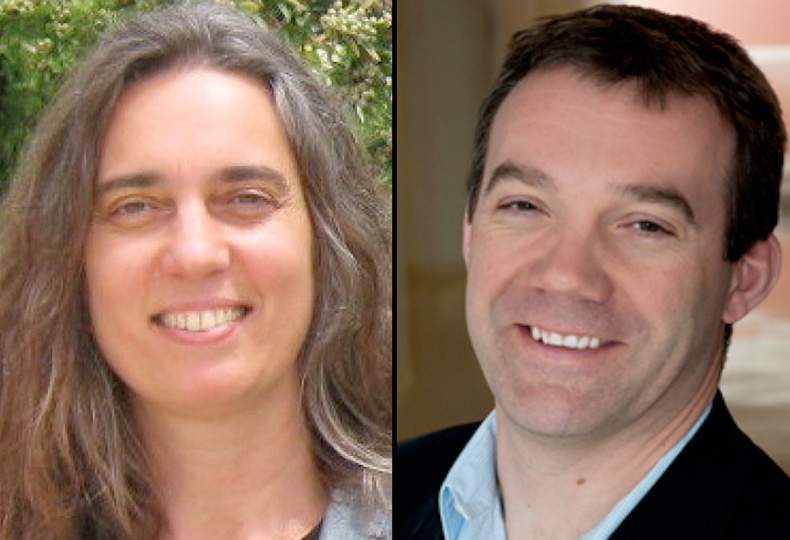Diploma Conference: Artists' materials – issues of the present day

The round table is in English. Don't forget to register on the Intranet!
The round table is in English. Don't forget to register on the Intranet!
ENS Paris-Saclay - Amphitheatre Alain Aspect ENS-PARIS-SACLAY webmaster@ens-paris-saclay.fr Europe/Paris public
PRACTICAL INFORMATION
Wednesday 3 April 2024 18:30 to 20:00
Amphi Alain Aspect
With Tom LEARNER (Scientific Director of the Getty Conservation Institute) and Maria João MELO (Director of Cultural Heritage at the NOVA University of Lisbon @LAQV)
Moderator: Loïc Bertrand
Conference mode: face-to-face and in English
This personal information is collected solely to monitor and validate your attendance at the Diploma Conferences. The conference is reserved for ENS Paris-Saclay students and staff..
Abstract
Artists' materials – issues of the present day
The study of artists' materials provides key elements for understanding artistic practices of the past, from the earliest days of the symbolic activities of modern humans. But specialists are increasingly interested in the diversity of artistic processes, not only for what they tell us about our past but also for the impact of these reflections and practices on the present. This atypically formatted Conférence du Diplôme will feature a dialogue between two of the world's leading specialists in artists’ materials: Tom Learner, scientific director of the Getty Conservation Institute in Los Angeles in the United States, and Maria João Melo, professor at the NOVA University in Lisbon and a specialist in the chemistry of historical pigments and dyes.
Why are scientists studying contemporary painting practices, which are much better documented than those of earlier periods?
In what way are the processes developed to produce pigments and dyes in medieval times still important today, or even a key source of information for synthesizing new compounds?
Are we able to produce historically accurate reconstructions of ancient paints? And above all, what can materiality teach us about human creativity in the arts?
These are just some of the major questions we will ask at this exclusive round table.
This event is being held in conjunction with the colloquium The practice of Robert Delaunay and his contemporaries, organized by the PPSM laboratory of the ENS Paris-Saclay at the Centre Pompidou from 4 to 5 April 2024.
Biography
Tom Learner
Tom Learner is head of the Getty Conservation Institute (GCI)’s Science department; he oversees the Institute's scientific research, developing and implementing projects that advance conservation practice in the visual arts. He was a GCI senior scientist from 2007 to 2013, overseeing the Modern and Contemporary Art Research initiative, during which time he developed an international research agenda related to the conservation of modern paints, plastics, and contemporary outdoor sculpture.
Prior to his arrival at the GCI, he served as a senior conservation scientist at Tate, London, where he developed Tate's analytical and research strategies for modern materials and led the Modern Paints project in collaboration with the GCI and National Gallery of Art in Washington DC. He was a GCI Conservation Guest Scholar in residence in 2001.
Learner is both a chemist and a conservator, with a PhD in chemistry from Birkbeck College, University of London, and a diploma in the conservation of easel paintings from the Courtauld Institute of Art.
Maria J. Melo
Maria J. Melo is a conservation scientist and a full Professor at the Department of Conservation and Restoration (DCR) of NOVA School of Science and Technology. She is a senior scientist at the research centers LAQV-Requimte and Institute of Medieval Studies at NOVA, being the head of the Cultural Heritage line. After a PhD in Physical Chemistry (1995), she decided to apply her expertise to the conservation of works of art, working at the Italian Research Council (1996–1998). On her return to Portugal in 1998, she participated in creating the DCR. She was its president (2017–2019) and coordinates its PhD Program. She has participated in 25 research projects, was the PI of 6, and was the author of over 100 publications in scientific journals listed in Web of Science. She supervised 21 successful PhD theses and serves on the editorial board of Heritage Science and Dyes and Pigments.
Her present challenge is strengthening her interdisciplinary research at the frontiers of the social and natural sciences, promoting public engagement.
